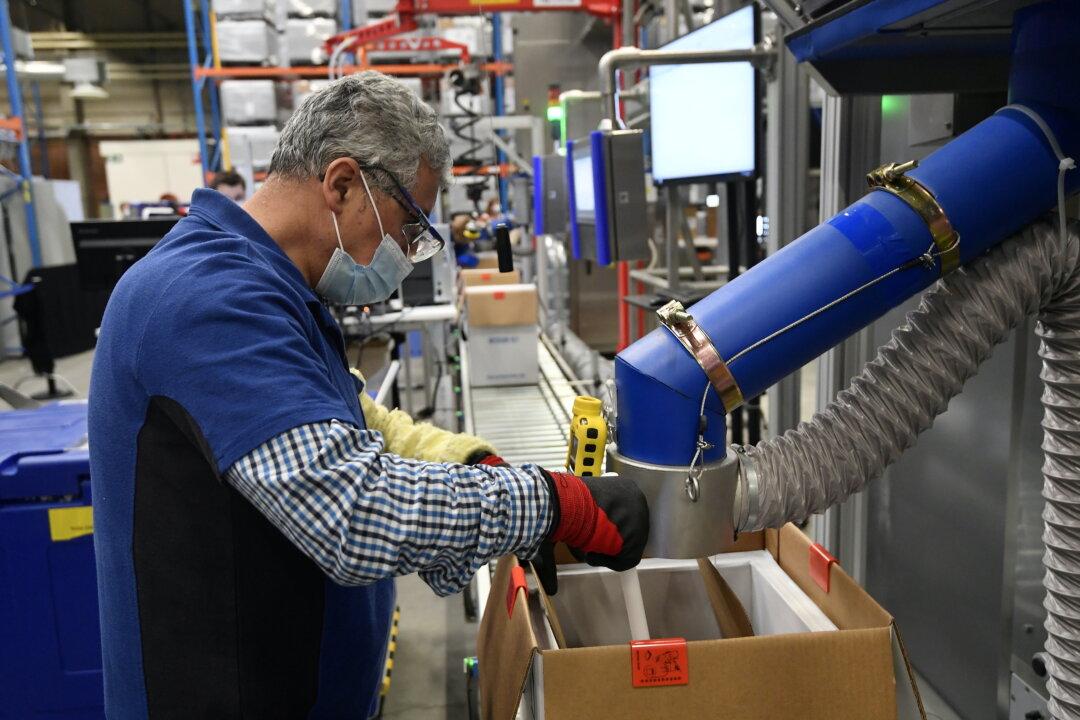BRUSSELS—The European Union submitted to the World Trade Organization on Friday a plan it believes will more effectively broaden supply of COVID-19 vaccines than the intellectual property (IP) rights waiver backed by the United States.
India, South Africa, and dozens of developing countries are demanding an IP rights waiver for COVID-19 vaccines and other treatments to address what they say is a “staggering inequity” in access to global public goods.





